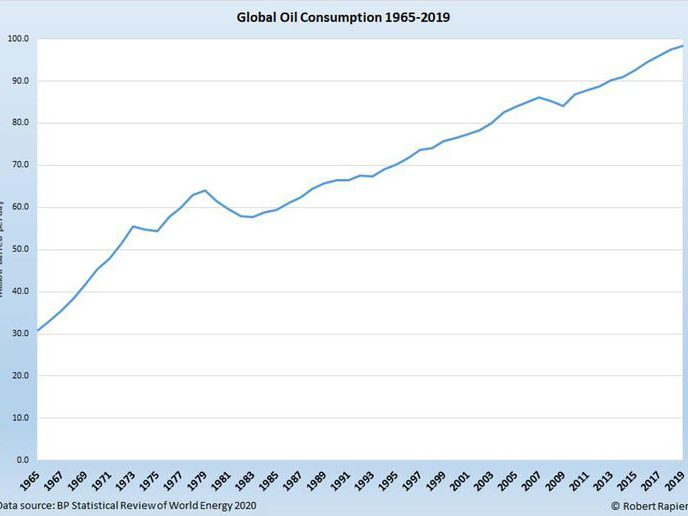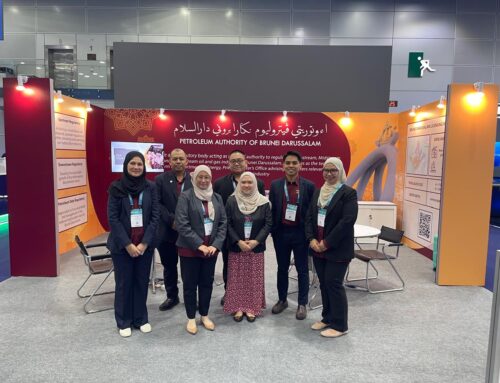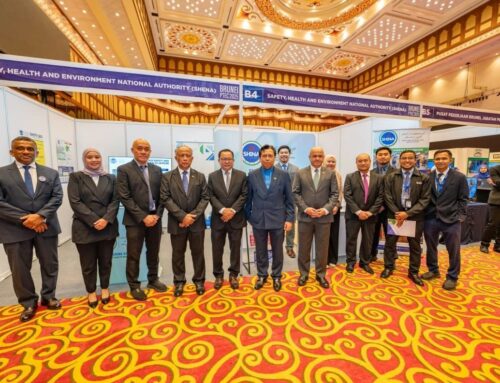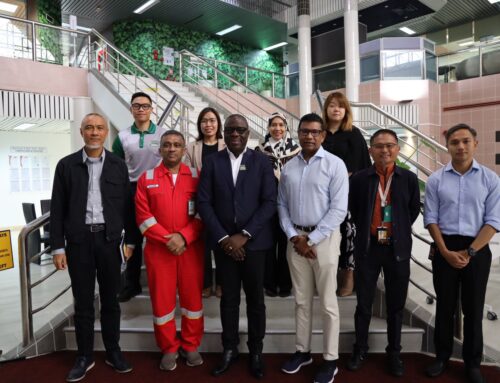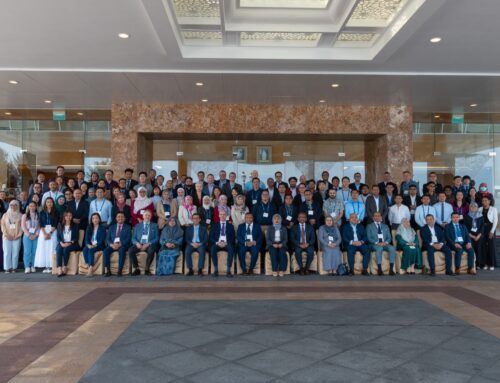Since the discovery of oil in 1929, the Oil and Gas industry has grown with strength to become the largest and most mature economic sector in Brunei Darussalam. It accounted for nearly 60% of the country’s Gross Domestic Product and 90% of exports in 2019. The Ministry of Energy has played a pivotal role in development of hydrocarbon reserves as the country’s main source of revenue. In the recent years, the Oil and Gas industry has seen major milestones particularly in the expansion and diversification of its downstream sector. This is in line with His Majesty Sultan Haji Hassanal Bolkiah Mu’izzaddin Waddaulah ibni Al Marhum Sultan Haji Omar ‘Ali Saifuddien Sa’adul Khairi Waddien, the Sultan and Yang Di-Pertuan of Brunei Darussalam’s titah in conjunction with His Majesty’s 71st birthday celebration, whereby His Majesty highlighted the need for continuous efforts to boost economic growth through the entries of Foreign Direct Investments (FDIs) and growth of Micro, Small and Medium Enterprises (MSMEs). Towards achieving economic growth, His Majesty also stressed greater collaboration between the private and public sectors. As such, these remain at the heart of the Ministry of Energy’s mission.
The most significant recent downstream project development is the full commercial operation of the Pulau Muara Besar (PMB) Refinery and Petrochemical Plant in November 2019. The PMB Refinery and Petrochemical Plant is the largest foreign direct investment project in Brunei Darussalam, with the capacity to refine 175,000 barrels per day of crude oil per year and generate 8 million tonnes of petroleum and petrochemical products per year. On 15 May 2020, Hengyi Industries Sendirian Berhad, as operator of the refinery and petrochemical plant, started its first supply of petroleum products for the domestic market as a part of its commercial agreement signed with Brunei Shell Marketing Company Sendirian Berhad (BSM). This enhances self-sufficiency and stable supply of essential petroleum products for the nation.
Towards the expansion of the downstream energy sector and to further explore opportunities in alternative energy sources, the Ministry continues to facilitate the global hydrogen supply chain demonstration project jointly conducted between Brunei Darussalam and Japan, and operated by the Advanced Hydrogen Energy Chain Association for Technology Development (AHEAD). Aimed at realizing global hydrogen transport and supply technology for full-scale hydrogen power generation by 2030, the project has reached a significant milestone after successfully transporting hydrogen produced from the Sungai Liang Industrial Park (SPARK) to Japan in the form of a stable organic compound shipped via conventional shipping methods, since December 2019. This hydrogen was successfully extracted and supplied to Japanese powerplants on 25 May 2020. This landmark achievement marks the success of the world’s first international hydrogen supply chain.
Moreover, the Brunei Fertilizer Industries’ ammonia and urea production plant will also add to the expansion of the country’s downstream energy portfolio. In 2019, the construction of the project generated local employment of 411. The plant is scheduled to start operations in the second quarter of 2021 with a production capacity of 3, 900 metric tonnes per day of urea.
In ensuring the development of the country’s energy sector, the Ministry is committed to maximising opportunities for locals. With a vision for a sustainable and diverse energy sector to support the long-term growth and prosperity of the nation, the Ministry has implemented several directives and initiatives. The Ministry issued the “Local Business Development (LBD) Directives” aimed at maximising local spending in the form of generating local job opportunities and the local use of goods and services. In 2019, a number of spin-off opportunities driven by the Ministry of Energy had been executed, which contributed to 300 job opportunities for locals. The “Bruneianisation Directive” for the oil and gas sector was also issued to enhance succession planning, progression and employment opportunities for Bruneians, while developing highly competent Bruneians at all organisational levels. The overall percentage of Bruneian’s among in the workforce of oil and gas operators was reported at 70% as of December 2019.
Future downstream developments and ongoing upstream oil and gas activities will bring in new skills and technology to Brunei Darussalam’s workforce and market. The Ministry has been gearing the local talent to meet this significant demand through collaborative efforts between various ministries and agencies, such as with the Manpower Planning and Employment Council (MPEC), Ministry of Education (MOE), industry representatives and other stakeholders. Other upcoming oil and gas activities include increasing exploration activities in Brunei Darussalam.
The past year has also seen the recent establishment of the Petroleum Authority of Brunei Darussalam from 31st December 2019, a statutory body tasked by the Ministry of Energy to oversee operations and infrastructure in the upstream, midstream and downstream oil and gas sector. Its establishment serves as a step towards further strengthening the regulation of the industry to ensure prudent and sustainable utilisation and development of the country’s oil and gas resources for a more resilient and stable oil and gas industry.

